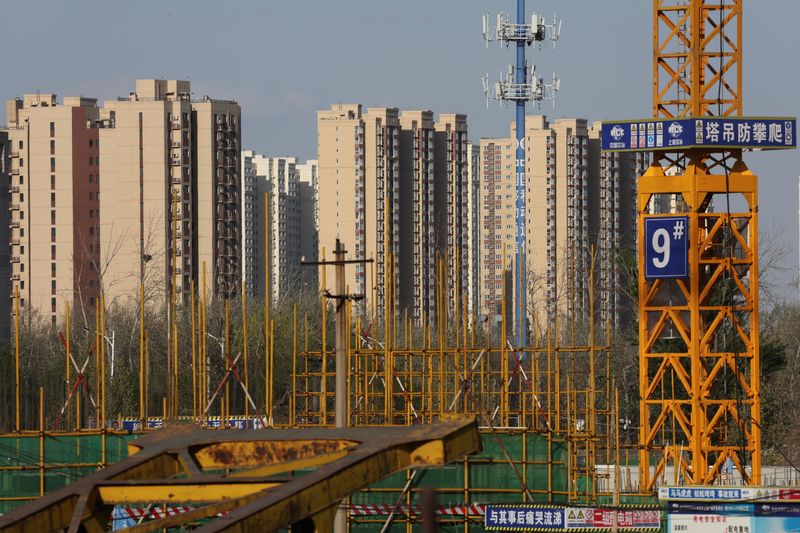BEIJING (Reuters) -China’s new home prices fell again in July, dropping 0.3% on month, but declines eased slightly in major cities as more local governments rolled out incentives for homebuyers, though further support is still needed.
The month-on-month decline was calculated by Reuters, based on data released by the National Bureau of Statistics (NBS) on Friday. In June, prices fell 0.3%.
Powered by Money.com – Yahoo may earn commission from the links above.
China’s property market has been stuck in a severe slump for more than four years, with declining prices, sales, new investment and construction starts weighing on economic growth. Analysts are unsure when conditions will bottom out.
“Given the high exposure of Chinese households to real estate, establishing a trough on prices is one of the most important factors to restoring confidence and generating a sustained consumption recovery,” ING said in a note to clients.
Reviving the real estate sector, which in its heyday accounted for a quarter of China’s economic activity, is a key task for policymakers as they strive to meet the country’s annual GDP growth target of “around 5%” amid domestic and external headwinds.
Of the 70 cities surveyed, 60 reported month-on-month declines, with the pace of falls slightly narrowing in tier-one cities.
On an annual basis, new home prices fell 2.8% in July, versus a 3.2% drop in June.
Notably, year-on-year declines are narrowing modestly across tier-one, tier-two, and tier-three cities.
“A clear turnaround and stabilisation are not yet in sight. The government should roll out a full set of property-market stabilisation measures without delay,” said Li Kai, founding partner and chief investment officer of Beijing Shengao Fund Management Co.
A sustained recovery in the housing market has remained elusive despite multiple rounds of policies to stimulate demand and help qualified developers with their liquidity shortages.
Resale home prices fell further year-on-year and month-on-month in July, with the declines narrowing in tier-two and tier-three cities but widening in tier-one cities.
Separate data showed China’s property investment fell 12% year-on-year in January-July and property sales by floor area fell 4.0%.
“Urban renewal initiatives and large-scale public housing procurement could help establish a stable baseline for the sector, provided these policies are executed effectively,” said said Yuhan Zhang, Principal Economist at The Conference Board’s China Center.
“Nonetheless, private market recovery is likely to remain uneven, with lower-tier cities facing greater challenges,” he said.
